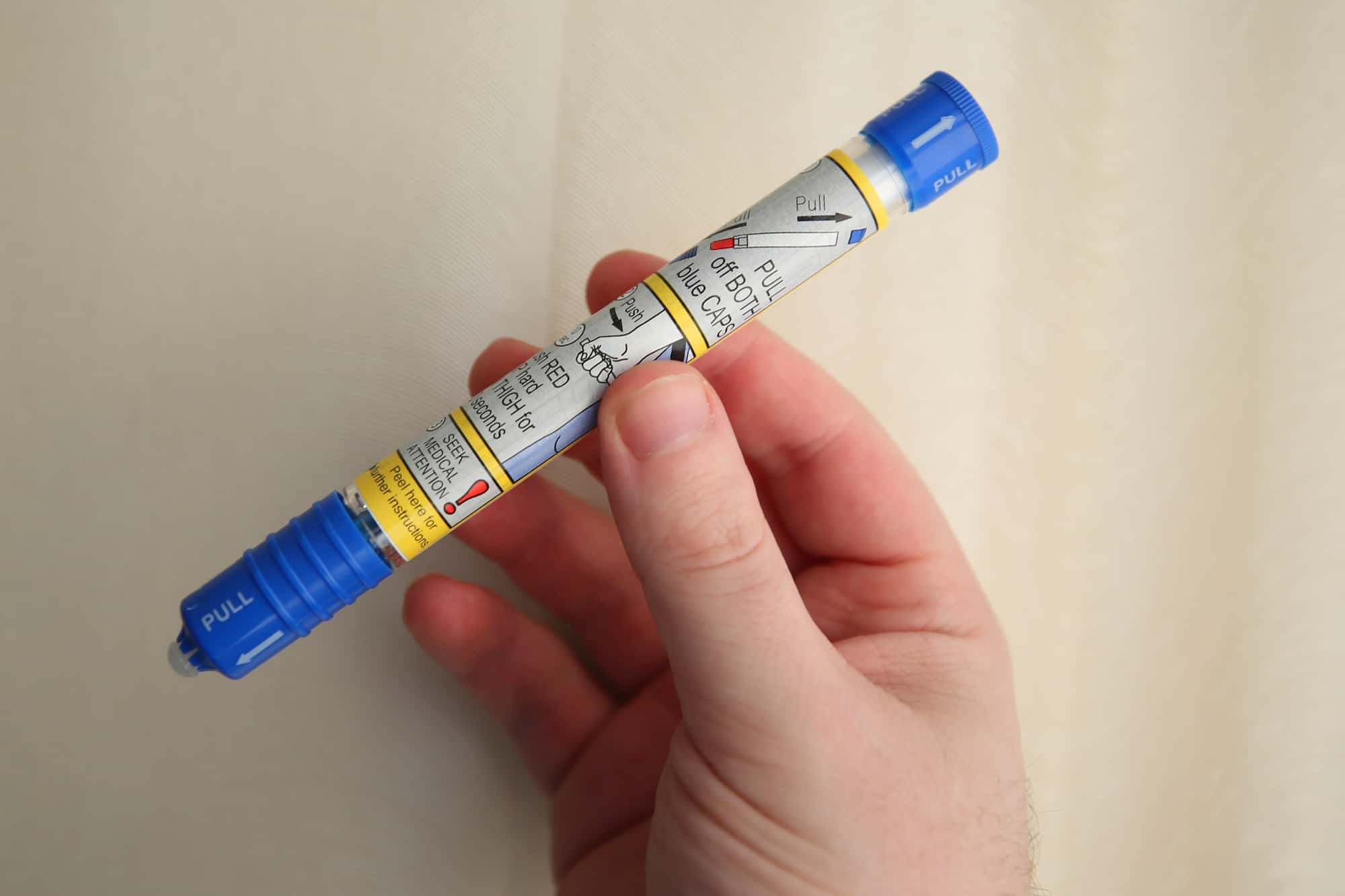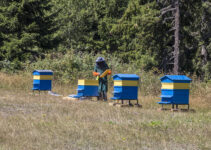Welcome back to Grampas Honey and yet another article discussing a key issue for beekeepers and anyone else that may keep an apiary! Today’s question is around the subject of EpiPens! Should you keep them in your beekeeping arsenal or not? If you are having this dilemma, hopefully by the end of this article, you will have a better idea what to do 🙂
A quick disclaimer to start 🙂 I am answering this question from the viewpoint of a beekeeper and the experience I have gained keeping an apiary. This is not medical advice in any way. Please contact a medical professional if you need medical advice around the subject of EpiPens.
Why Might You Want an EpiPen at your Apiary?
Some beekeepers like to keep EpiPens at their apiary because they are a potentially life-saving device that can help beekeepers and their families if they are stung.
EpiPens are designed to quickly reverse the effects of a bee sting. They contain epinephrine, which can stop the allergic reaction and make it much easier for the person that has had a reaction to a bee sting breath. EpiPens come in different dosages and children’s versions, so they can be used by all ages.
It is important to note that beekeepers are not at risk for anaphylaxis from being stung by a bee. Beekeepers may, however, be at risk for anaphylaxis if they have a history of allergies to insect bites or stings.
When Should you Consider an EpiPen as a Beekeeper?
Obviously, if you are unlucky even to be a beekeeper that has a history of allergic reactions to any kind of insect stings, you should think about going to get a prescription for an EpiPen. For me personally, I would also do this if I was a person with numerous allergies just to be on the safe side. You may have an as yet undiscovered allergy to bee stings and if you do, you will want an EpiPen on hand.
Beekeepers are known to have a slightly higher likelihood of developing a systemic allergic reaction to bee stings, so this could be another consideration for keeping an EpiPen around.
Some beekeepers or apiary managers like the idea of keeping an EpiPen if they are located deep in the countryside away from medical help (such as hospitals). If you are not able to get an ambulance to your apiary within 10-15 minutes, this could be life threatening for something suffering from anaphylaxis as a result of a bee sting (or anything else for that matter!!). This could be another consideration for keeping an EpiPen on site.
If you do decide to get an EpiPen then make sure to take the necessary training so that you know how to use it properly. It may be a good idea for a few of your close relatives to do the same. Training on how to tell the difference between a local and system allergic reaction would also help you know when to use the EpiPen (local reactions are not usually life threatening).
What are the Concerns of Keeping an EpiPen as a Beekeeper?
It’s all well and good keeping EpiPens for yourself or anyone in your family. These EpiPens can be prescribed to you by a doctor and you know they are safe to use on that person.
The problem comes up when some beekeepers keep EpiPens on site for anyone that potentially has a life threatening allergic reaction. Be aware that if you use an EpiPen prescribed for one person on another (likely a total stranger) you may be liable if anything was to go wrong. This could even be illegal in some states (contact your local legal representative to be sure).
As long as you don’t administer the EpiPen, you could argue that it was just made available to the person suffering, and it was their choice whether they should use it or not.
But for me, this is just a massive grey area. One which could get you in ‘hot water’ legally. I would always recommend erring on the side of caution and only using EpiPens on yourself or family members that have this medicine prescribed to them. Surely, if someone comes to your apiary who has a bee sting allergy that should bring their own EpiPen and if an allergic reaction happens out of the blue, they are just plain unlucky!
But this is a personal decision that you need to think about and consider carefully. Some people may have the view of ‘save a life and to hell with the potential consequences’ but that is not my own personal viewpoint 🙂
Another thing to consider is that EpiPens are relatively expensive and they need to be replaced every 18 months or so. So if medical help is not too far away, you may want to think about the necessity of keeping them full time.




